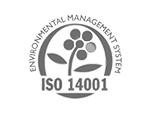Ever wondered how transport companies manage to track shipments with pinpoint accuracy or plan routes that seem impossibly efficient? Behind these modern miracles lies a digital revolution that’s reshaping every aspect of the transport industry. From smart sensors monitoring cargo conditions to AI systems calculating the perfect delivery routes, technology is transforming how materials move across our world.
Digitalization is fundamentally transforming the transport industry
Digitalization is fundamentally transforming the transport industry through advanced technologies that enhance efficiency, transparency, and sustainability. The integration of digital tools like IoT sensors, AI-driven route optimization, and real-time tracking systems is revolutionizing how logistics companies operate and serve customers. These smart transport solutions enable more precise planning, reduced operational costs, and improved service quality. The shift toward digital platforms is also enabling transport providers to better analyze performance data, respond more quickly to market changes, and develop more environmentally sustainable practices across their operations.
Understanding the digital revolution in transport
The transport industry is experiencing a profound technological shift that’s redefining traditional operations and business models. This digital revolution isn’t just about adopting new tools—it’s about fundamentally changing how transport services are planned, executed, and monitored.
Digital technologies are enabling transport companies to move beyond traditional paper-based processes toward integrated systems that connect vehicles, warehouses, and administrative functions. The result is greater visibility across the entire supply chain, with information flowing seamlessly between different stakeholders.
For bulk material transporters, digitalization means more precise tracking of specialized cargo, better maintenance scheduling for specialized equipment, and improved safety protocols. These improvements help meet the growing demands of customers who expect fast, reliable, and transparent service in today’s connected world.
What are the main digital technologies reshaping transport operations?
Several key technologies are driving the digital transformation in transport operations, creating new capabilities and efficiencies throughout the logistics chain. Internet of Things (IoT) sensors installed in vehicles and cargo containers provide continuous data about location, temperature, humidity, and other critical parameters, ensuring proper handling of sensitive materials.
Artificial intelligence and machine learning algorithms are revolutionizing route planning and optimization, analyzing countless variables to determine the most efficient delivery paths while adapting to real-time conditions like traffic and weather. This technology is particularly valuable for companies handling bulk materials where load optimization is crucial.
Blockchain technology is streamlining documentation processes by creating secure, tamper-proof records of transactions and cargo movements. This reduces paperwork, minimizes disputes, and accelerates payment processes.
Advanced telematics systems combine GPS tracking with vehicle diagnostics to monitor driver behavior, fuel consumption, and maintenance needs. This comprehensive approach to fleet management helps transport companies improve safety, reduce costs, and extend vehicle lifespan.
If you’re looking to partner with a transport provider utilizing these advanced technologies, you can request transport quotations to compare service offerings.
How is real-time tracking improving customer satisfaction?
Real-time tracking technology is significantly enhancing customer satisfaction by providing unprecedented transparency throughout the transport process. Customers now have continuous visibility of their shipments, eliminating uncertainty and the need for frequent status inquiries. This transparency builds trust and confidence in the transport provider.
GPS-enabled tracking systems allow both transport companies and their customers to monitor shipments on a minute-by-minute basis. For specialized bulk material transport, this means customers can better plan their operations around accurate delivery times, optimizing their production schedules and resource allocation.
When delays occur due to unforeseen circumstances, real-time tracking enables proactive communication. Transport companies can notify customers immediately and provide updated arrival estimates, allowing businesses to adjust their plans accordingly. This proactive approach transforms what could be a negative experience into a demonstration of professional service.
For international shipments spanning multiple countries, real-time tracking provides valuable peace of mind and allows customers to make informed decisions based on accurate shipment data.
What benefits does data analytics bring to transport efficiency?
Data analytics is revolutionizing transport efficiency by transforming raw operational data into actionable insights that drive better decision-making. By analyzing patterns across thousands of journeys, transport companies can identify optimization opportunities that would be impossible to detect through human observation alone.
Predictive maintenance is one of the most valuable applications of data analytics in transport. By monitoring vehicle performance metrics, companies can identify potential issues before they cause breakdowns, scheduling maintenance during planned downtime rather than suffering costly emergency repairs and service interruptions.
Fuel consumption optimization represents another significant benefit. Analytics tools can identify inefficient driving patterns, idling time, and routes that consume excessive fuel. For transport companies, this translates directly to cost savings and reduced environmental impact.
Data analytics also improves capacity utilization by identifying patterns in demand, helping transport providers better allocate their resources and reduce empty miles. This is particularly important for specialized transport services where finding compatible return loads can be challenging.
How are digital solutions making transport more sustainable?
Digital solutions are playing a crucial role in making transport operations more environmentally sustainable through several key mechanisms. Smart routing algorithms calculate the most fuel-efficient paths, considering factors like traffic conditions, road gradients, and vehicle specifications to minimize fuel consumption and emissions.
Load optimization software ensures vehicles carry optimal cargo amounts, reducing the number of trips required and maximizing the efficiency of each journey. For bulk material transport, this means fewer partially-filled tankers on the road, lowering the overall carbon footprint per tonne of material moved.
Digital platforms also facilitate better collaboration between transport companies, enabling shared resources and reduced empty miles. This collaborative approach means fewer vehicles can serve the same transport needs, further reducing environmental impact.
Emission monitoring systems provide accurate data on environmental performance, allowing transport companies to measure their progress against sustainability goals and identify areas for improvement. This data-driven approach ensures that sustainability efforts are focused where they can have the greatest impact.
Embracing digital transformation for future success
Embracing digital transformation is no longer optional but essential for transport companies looking to remain competitive in a rapidly evolving industry. The integration of digital technologies enables more responsive, efficient, and customer-focused operations that can adapt to changing market demands.
For transport companies, the journey toward digitalization often begins with identifying the most pressing operational challenges and implementing targeted digital solutions. This incremental approach allows for manageable change while delivering tangible benefits at each stage.
At Powder-Trans, we’ve recognized the importance of digital innovation in our specialized bulk material transport services. We’re continuously investing in technologies that enhance our operational efficiency, improve customer service, and support our sustainability goals. Our digital transformation journey focuses on creating value for our customers through more reliable, transparent, and efficient transport solutions.
The future of transport lies in connected, intelligent systems that can anticipate needs, adapt to changing conditions, and deliver seamless service. By embracing digital transformation today, transport companies are positioning themselves for success in the increasingly digital world of tomorrow.
To learn more about our approach to digital transformation or to discuss your specific transport needs, please visit our contact information page for personalized assistance.






